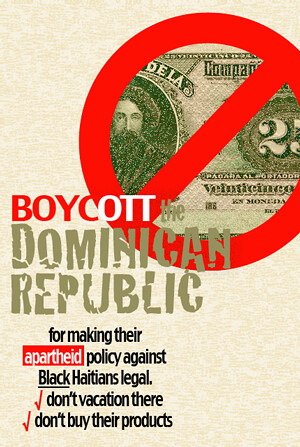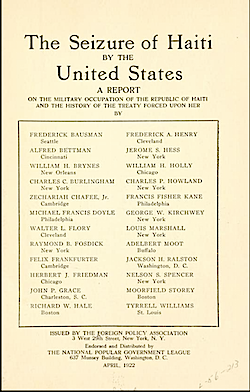A pre- 850 billion bailout analysis of the American economic system written in February 2007 makes the point that we will change nothing unless we "change the way money works in our personal lives, our communities, and our world." The author Carolyn Baker credits Catherine Austin Fitts as the one person "on earth who has... clearly articulated the way sustainable and unsustainable economic systems work." Ms. Baker teaches history to college students and has written several books. She believes that US presidents have little influence and control over the American economic system, which she terms the "neo-liberal tapeworm" that feeds on its host (the U.S. citizen) and the world.
Naomi Klein, who wrote the book "The Shock Doctrine: The Rise of Disaster Capitalism." thinks that the current economic crisis and bail out is the "shock" that will prevent a president Obama from instituting the changes that his campaign is promoting; such as new sources of sustainable energy, universal healthcare, an overhaul of the education system and middle class tax relief.
"Tapeworm” is the name Fitts applies to the economic system of the U.S. which seeks to feed upon both its inhabitants and its neighbors, near and far, and at the same time, ingest them with toxins which cause them to crave the very elements which feed the Tapeworm, thereby establishing a perpetual search-and-destroy economic system. Inherent in Tapeworm economics is the primacy of centralized financial systems such as the Federal Reserve, national and worldwide banking networks, a complex global economic apparatus, reliance on agribusiness for food supply and distribution, and the privatization of resources—all without financial transparency or accountability.Barack Obama has taken an active part in supporting the unpopular bailout of Wall Street to the tune of $850 billion dollars,
Conversely, a sustainable economy is de-centralized and locally-focused, relying on small, well-managed local banks; food supplies which are grown, financed, and distributed locally; community ownership of land and resources; local commerce and industry; and above all, financial transparency.
Among the myriad advantages of categorizing economic systems in this way is the immediate exposure of federal election campaigns as unequivocally by, for, and about centralized financial systems which offer the illusions of “choice” and “change”.
No sincere proponent of a sustainable economy has the slightest possibility of emerging victorious in a country where centralized financial systems furnish, finance, and in the current milieu, manage electoral outcomes. Or as Aaron Russo’s documentary “America From Freedom To Fascism” underscored, voting in a national election is essentially making a choice between two crime families who are ostensibly at war with each other but will always join forces when their mutual interests are threatened.
Unfortunately, the bailout did not include measures to help middle class Americans; such as a moratorium on foreclosures, mortgage relief and restructuring and bankruptcy relief. The U.S. government is complicit in giving Treasury Secretary Paulson and his cronies on Wall Street a blank check and very little transparency and oversight to stop them from further theft and mismanagement. The very people who have exploited the system have been rewarded and are set to use this bailout as a windfall that will cover more risky investments and their assets.
The Baker article maintains:
If we attentively read United States history, we learn that particularly in recent times, financial systems, not presidents, dictate policy and that “Chief Executives” are themselves at the mercy of those systems--before, during, and after their term of office. Electing presidents changes little, but changing how money works changes everything.Indigenous People Respond to the World Financial Crisis
An article in the Mohawk Nation News uses the parasite analogy to describe the U.S. economic system and its precipitous collapse, suggesting the necessity for revolutionary change:
"The public is crying out for major change to end the colonial racist greedy system. They have to look at Indigenous culture and harmonize their society with ours to survive. They need to renew all their arrangements with us to live, think and govern themselves so that the parasites are pushed aside. Sacrifices are necessary or humanity will destroy itself.Ms. Baker writes that the "neoliberal tapeworm" is also being rejected in Latin America in countries like Venezuela, Bolivia, Chile, Ecuador, and Nicaragua for more sustainable economic systems. In Brazil, Senator Eduardo Matarazzo Suplicy sponsored "Citizen's Basic Income" legislation. In their book "The Ethics And Economics of the Basic Income Guarantee", Karl Widerquist and Michael Anthony describe Brazil's basic income law. A citizen in Brazil has the right to a basic income and to contribute to that developing nation building "a just and civilized society." Interestingly, in the U.S., Alaska has a guaranteed income in the form of the "Alaska Permanent Fund" which provides a guaranteed income to all of Alaska's citizens. This economic instrument is also being introduced in Iraq as an oil shares "dividend" to be distributed to Iraq's citizens.
There is another world, a world of resistance. Our fate rests in our own humble hands. Indigenous people have survived. We kept our philosophy, our notions of governance, our duties to mother earth and our way of life which was terribly damaged. We have been able to resuscitate it and bring it back to a healthy life. We all have our strengths. We have an enormous evolved consciousness. People are beginning to see through this capitalist fraud.
Do U.S. President George Bush, Republican candidate John McCain and Democratic candidate Barack Obama want to really re-arrange the economy and society on a new basis? Do they want to dig up the roots of the colonial past and harmonize relations with the Indigenous people and mother earth?"
Ms. Baker theorizes that an economic transformation must take place in the United States in order for humankind and the ecosystems to survive beyond the age of oil
"It first begins with a commitment to financial literacy in concert with sustainable economics.
Next, one must increase one’s learning curve regarding the reality of corruption in the United States. American “exceptionalism”, the puerile illusion that other countries are corrupt, but the U.S. is not, must be shattered...
As a result of this recognition, it then becomes crucial to illuminate corruption and Tapeworm economics in one’s own community, i.e., narcotics trafficking, fraud, entities such as universities, foundations, churches, non-profit agencies, and media that accept contributions from the Tapeworm and serve its interests...
...we have no business depositing our money in Tapeworm banks or using credit cards from those institutions. It is our responsibility to transact with institutions that keep the money in our communities, rather than drain it out...
Understand that personal debt finances the Tapeworm and ensures its continued success. Get out of debt, and if you must use credit cards at all, pay them off in full monthly... Investigate people-to-people lending arrangements such as those found at www.prosper.com.
Become involved with other activists in your community to block the privatization of land and resources and demand public ownership of them.
Recognize that “socially responsible investing” usually isn’t. Consult the Solari website for investment opportunities that genuinely promote sustainability while bringing an optimum return.
Consider investing in precious metals—silver or gold, and consult the Solari site for ways to begin doing so with small, affordable amounts. If you deposit money in a savings account, why not invest some of it in precious metals instead?
If we attentively read United States history, we learn that particularly in recent times, financial systems, not presidents, dictate policy and that “Chief Executives” are themselves at the mercy of those systems--before, during, and after their term of office. Electing presidents changes little, but changing how money works changes everything.
Update 10.22.08
I have the wrong link for Barack Obama's top contributors. Obama's top contributors are here. I mistakenly have John McCain's top campaign contributors instead. I regret the error.





2 comments:
Your link to Barack Obama's top contributors at OpenSecrets.org goes to John McCain's top contributors. Here are Barack Obama's:
University of California $777,593
Goldman Sachs $743,371
Harvard University $505,989
Citigroup Inc $499,598
Google Inc $493,705
http://www.opensecrets.org/pres08/contrib.php?id=N00009638&cycle2=2008&goButt2.x=9&goButt2.y=10&goButt2=Submit
or
http://tinyurl.com/5omxn3
Thank you Maggie.
Post a Comment